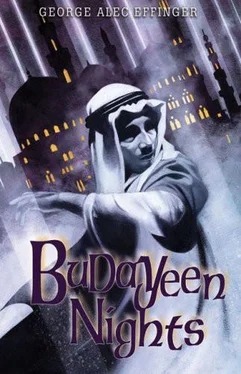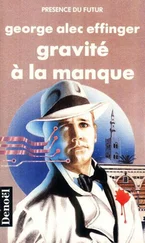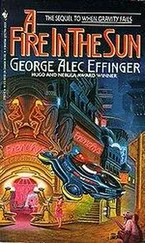The city was certainly one of immigrants, Ernst thought. As he had escaped from a crazy Europe, so had Czerny. So had Sandor Courane. Ieneth and her false flower, Ua, had fled from some mysterious wild empire. Could it be that every person sheltered within the city’s granite walls had been born elsewhere? No, of course not; there must be a large native population. These must be the ones most stirred by the absurd wrath of the Jaish, for who else had enough interest? Ernst lived in the city only because he had nowhere else to go. He had stopped briefly in Gelnhausen and the nearby village of Frachtdorf. From Bremen he had sailed to the Scandinavian settlements that bordered the northern sea. He had resided for short times in England and France, but those nations’ murderous nationalism made him run once more. Each time he settled down, it was in a less comfortable situation. Here on the very lip of Africa, the city was the final hope of those who truly needed to hide.
Ernst had often tried to write poems or short, terse essays about the city, but each time he had given up in failure. He couldn’t seem to capture the true emotions he experienced, feelings different in subtle, unpoetic ways from the vaguely similar emotions he had known while living in Europe. The poems could not reflect the pervasive sense of isolation, of eternal uncleanness, of a soul-deep loss of personality; these things descended upon a European, only hours after arriving at the dune-guarded gates of the city.
He had early on made the mistake of showing some of these frustrated scribblings to M. Gargotier. The proprietor had read them politely, muttering the words under his breath as he traced his progress down the page with a grimy finger. When he finished, he had handed the paper back to Ernst without a word, and stood silently, evidently uncomfortable but unwilling to make a final judgment. Soon Ernst stopped asking M. Gargotier to read them, and both men seemed happier for it.
A small voice whispered behind Ernst. It was Kebap, the young fraud. “I know of another city like this one,” said the boy. “It was in Armenia. Of course, there wasn’t sand all around to keep us in. This town was imprisoned by its own lack of identity. There were perhaps five thousand Turks living there, of which several may have been my true father. Indeed, ‘several’ hardly does justice to the whiteness of my mother’s eyes, or the perfection of her skin, at least in those days of a decade past. But I must be modest in all accounts, so that later claims may be made with greater hope of acceptance.”
“You are wise beyond your years, Kebap,” said Ernst sadly.
“That is not difficult at the age of nine,” said the boy. “Nevertheless, I continue. There were perhaps half again as many Armenians, and some Greeks. Persians passed through often, bearing objects which they could not sell. These men rode on the backs of bad-smelling horses and camels of a worse reputation, and we always deviled them continuously until they departed again.
“The houses in this Armenian wonder had flat roofs above stone walls, and it was the custom to grow grass upon the roofs. Naturally, with the best fodder in the neighborhood up there, our sheep and calves grazed above our heads. When we stood on the hillsides not far from this town, the houses were invisible against the surrounding plain. I forget what the name of this city was. One day my mother and several of my uncles took me on a long walk; we packed a lunch of cold meat and water, for the Persians had arrived early that morning and we wanted to escape their presence. We climbed far into the hills so that it was almost time for evening wagib when we stopped. I was asleep, carried by an uncle, on the return journey. I was told the next day that our city could not be found. Every time a herd of sheep was investigated, it was discovered to be firmly on the ground, not upon our familiar rooftops. We wandered the hills and the nearby country for weeks, searching for that disguised city. At last, we arrived here.”
“Your strategy was shrewd, Kebap,” said Ernst. “That is very difficult to believe.”
“It is fully documented.”
“I shall have to examine your records someday.” Ernst turned to see the boy, but there was no one there. “He is a quick monster indeed,” thought Ernst.
Night crept westward, sweeping more of Africa under her concealing shroud. Ernst sat at his table with his bits of paper and his little supper of cheese and apples. Around him the city prepared for night but he didn’t care. Customarily each evening after dinner he declared the day productive; arriving at this point, he ordered Scotch whisky and water.
“It is time to relax now,” thought Ernst. “It is time to pack away for the day the tedious, essential hatreds and hopes. It is time to sit back and bring out my informal thoughts. How I am growing to despise these memories even more than I despise their subjects. The very issue of my thoughts is soiled by this city, so that had I known the dearest saint of Rome in my youth, I could not think on her now with anything but scorn and malice. I am not interested by my musings, and their temper is becoming too acid for my dispassionate self.
“Eugenie, you seem to be suffering the most, though even now, at this unofficial time of day, I can still summon up nothing but a tepid dislike. You must hold a special position of disfavor in my heart; that is your fate, grow used to it. Marie, you look lovely tonight. A constellation of false memories enriches you. If I do not look at them too closely, I can successfully pretend a few moments of joy. Permit me this indulgence, Marie. I will do the same for you, if ever I’m given the opportunity.”
The people on the sidewalk were rushing by now, their faces marked by an intensity of purpose that was never apparent during the day’s business hours. Despite Ernst’s glum appraisal, the city held many sorts of wonderful things, nonetheless, things rare in Europe and prized by the slaves and the poor. For instance, there was a large colony of artists, and their pottery and sculpture had a certain reputation beyond the walls of the city, though not so great that it attracted either merchants or collectors. Ernst was bored by clay pots, and he had little enough of his own art to offer in trade. At this time of day, the craftsmen of the city would be heading for the bars with their day’s earnings, eager for the less tangible beauties of wine and poetry.
The citizens of this place of oblivion chased amusement relentlessly, as a plague victim might follow a hapless doctor in hope of miracles. At night, with only the cold cosmetic of moonlight, the city slipped on a shabby mask of gaiety, but no one criticized. Ernst smiled to himself, nodded to the grim-faced celebrants, observed in a clinical fashion the desperate pursuit of diversion.
It was a dangerous thing to pray that a lasting release might be had from the day’s troubles. Each day was so like the previous day that the pleasures pilfered during the night cheapened with the sun’s rising. It was as hopeless a thing as the Bridge of the Mad Berber, who cried for many years to the people of the city that a bridge be built — a gigantic bridge, the world’s largest suspension bridge, an engineering marvel to catch the imagination of all civilized peoples. It would rise from the north gate of the city, span the immense waste of sand, cross the distant range of mountains, the narrow strip of coastal plain, the rolling leagues of the sea, to end at last, abruptly, curiously, on the island of Malta. It would be a hardship, indeed, for anyone traveling along that bridge. The Mad Berber chose Malta as the terminus evidently only because that island had been the birthplace of his mother.
Many of the people hurried along the street to the south, toward the Chinese quarter, where another eccentric resident of the city, a weary, stranded Breulen duke, had long ago built a fantastic parody of various memorable sections of Singapore. Like many things in the city, this dollop of Asia seemed romantic at first, but soon distressed the observer with a richness of unwholesome detail. The Breulen nobleman had loved Singapore, the story went, or, at least according to other accounts, had been fascinated by written descriptions and never actually visited the island at all. In any event, he, like so many others of his class, at last took up residence in the lonely African city. His project to reproduce the more spectacular attributes of Singapore was no less insane than the Mad Berber’s bridge, but in this case the duke had the wealth to accomplish his goal.
Читать дальше












